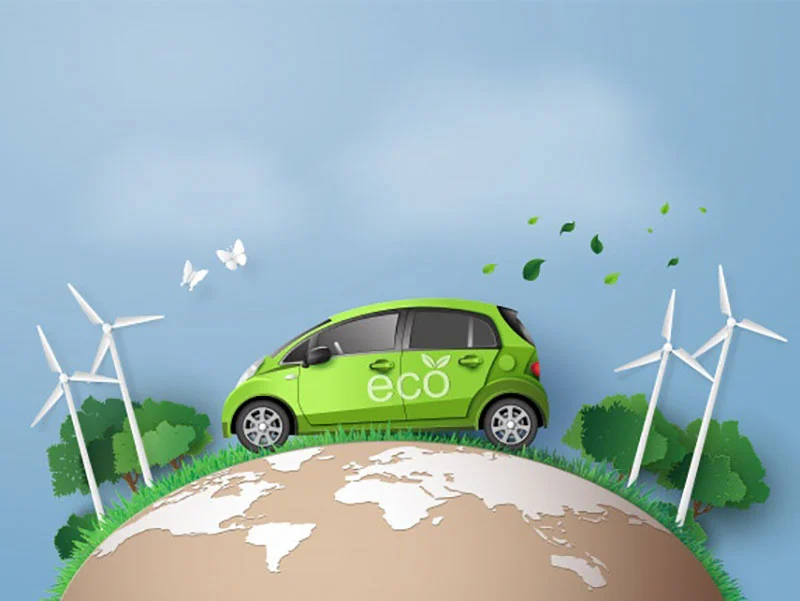In recent years, there has been a significant increase in the popularity of sustainable driving, with a growing focus on eco-friendly automobiles and technologies. The rise of electric and hybrid vehicles, as well as advancements in fuel-efficient engines and alternative fuel sources, has transformed the automotive industry. Sustainable driving practices, such as carpooling, using public transportation, and adopting eco-friendly driving habits, have also gained traction as people become more aware of the environmental impact of traditional driving methods. As a result, the concept of sustainable driving has become a key consideration for both consumers and automotive manufacturers, leading to a shift towards more environmentally friendly transportation options.
This shift towards sustainable driving has led to a surge in interest in electric vehicles, hybrid cars, and fuel-efficient technologies. Consumers are increasingly curious about the benefits of electric and hybrid vehicles, as well as the availability of charging infrastructure. Additionally, advancements in sustainable driving technologies, such as regenerative braking and lightweight materials, are gaining attention for their potential to improve fuel efficiency and reduce environmental impact. As the demand for eco-friendly automobiles and technologies continues to grow, the automotive industry is likely to see further innovations and developments in the pursuit of sustainable driving solutions.
The Evolution of Eco-Friendly Automobiles
In recent years, there has been a significant shift towards eco-friendly automobiles as a response to the growing concern for environmental sustainability. Manufacturers have been investing heavily in research and development to create vehicles that are more fuel-efficient and produce lower emissions. This has led to the rise of electric cars, hybrid vehicles, and advanced fuel-efficient technologies.
Electric cars, in particular, have gained popularity as they produce zero emissions and can be charged using renewable energy sources such as solar or wind power. Hybrid vehicles combine traditional combustion engines with electric motors to achieve better fuel efficiency, while advanced fuel-efficient technologies, such as turbocharging and direct fuel injection, have improved the overall performance of internal combustion engines.
The Benefits of Eco-Friendly Automobiles
Eco-friendly automobiles offer a wide range of benefits, both for the environment and for consumers. By reducing emissions and dependency on fossil fuels, these vehicles help mitigate air pollution and combat climate change. Additionally, they can lead to cost savings for consumers through lower fuel expenses and potential tax incentives or rebates.
Furthermore, eco-friendly automobiles often feature advanced technologies and innovative designs that provide a quieter and smoother driving experience. This, in turn, contributes to a more enjoyable and comfortable ride for drivers and passengers alike, making them a desirable option for many consumers.
The Role of Renewable Energy in Sustainable Driving
Renewable energy plays a crucial role in sustainable driving by providing a clean and sustainable source of power for electric vehicles. Solar, wind, hydroelectric, and geothermal energy can be harnessed to charge electric car batteries, reducing the overall carbon footprint of driving. As the infrastructure for renewable energy continues to expand, the potential for widespread adoption of electric vehicles becomes increasingly feasible.
Moreover, the integration of renewable energy with smart grid technologies allows for more efficient energy distribution and consumption, further enhancing the sustainability of electric vehicles. This synergy between renewable energy and sustainable driving is a key factor in transitioning towards a greener and more environmentally friendly transportation system.
The Impact of Autonomous Driving on Sustainability
The development of autonomous driving technologies has the potential to greatly impact sustainability in the automotive industry. By optimizing routes, reducing traffic congestion, and minimizing sudden accelerations and decelerations, autonomous vehicles can significantly improve fuel efficiency and reduce emissions. Additionally, the implementation of platooning, where vehicles travel closely together to reduce air resistance, can further enhance the eco-friendliness of transportation.
Furthermore, the rise of shared autonomous vehicles can lead to a decrease in the overall number of cars on the road, as they can be utilized more efficiently by multiple users. This, in turn, can alleviate parking congestion and reduce the demand for new vehicle production, contributing to a more sustainable urban environment.
The Role of Sustainable Materials in Automobile Manufacturing
Automobile manufacturers are increasingly turning to sustainable materials in the production of vehicles to reduce their environmental impact. This includes the use of recycled and bio-based materials, such as recycled plastics, natural fibers, and bio-based composites, in car interiors and exteriors. Additionally, the adoption of lightweight materials, such as aluminum and carbon fiber, contributes to improved fuel efficiency and reduced emissions.
Furthermore, the implementation of eco-friendly manufacturing processes, such as water-based paints and energy-efficient production facilities, further enhances the sustainability of automobile manufacturing. By prioritizing sustainable materials and production methods, manufacturers can minimize the environmental footprint of vehicle production and promote a more circular economy.
The Role of Government Policies in Promoting Eco-Friendly Automobiles
Government policies and regulations play a significant role in promoting the adoption of eco-friendly automobiles. This can include incentives such as tax credits, rebates, and subsidies for the purchase of electric or hybrid vehicles, as well as the implementation of stricter emissions standards for traditional combustion engine vehicles. Additionally, investments in charging infrastructure and public transportation systems contribute to the overall sustainability of the transportation sector.
Furthermore, initiatives to promote research and development in sustainable driving technologies, as well as partnerships with industry stakeholders, demonstrate a commitment to advancing the adoption of eco-friendly automobiles. By aligning policies with environmental goals, governments can drive significant progress towards a more sustainable and eco-friendly transportation system.
The Future of Eco-Friendly Automobiles and Technologies
The future of eco-friendly automobiles and technologies is promising, with ongoing advancements in electric vehicle technology, battery efficiency, and renewable energy integration. As consumer demand for sustainable driving options continues to grow, manufacturers are expected to expand their offerings of electric and hybrid vehicles, as well as invest in innovative solutions for improving fuel efficiency and reducing emissions in traditional vehicles.
Moreover, the convergence of sustainable materials, autonomous driving, and renewable energy is poised to transform the automotive industry, leading to a more sustainable and environmentally friendly transportation ecosystem. With continued support from governments, businesses, and consumers, the transition towards a greener and more sustainable automotive sector is well underway, paving the way for a more sustainable future.
| Topic | Description |
|---|---|
| Electric Vehicles | Automobiles powered by electric motors and batteries, producing zero tailpipe emissions. |
| Hybrid Vehicles | Cars that combine an internal combustion engine with an electric motor, reducing fuel consumption and emissions. |
| Fuel-Efficient Technologies | Innovations such as start-stop systems, aerodynamic designs, and lightweight materials that improve fuel economy. |
| Alternative Fuels | Renewable and low-carbon fuels such as biodiesel, ethanol, and hydrogen, reducing greenhouse gas emissions. |
| Smart Transportation Systems | Technologies that optimize traffic flow, reduce congestion, and minimize environmental impact through data analytics and connectivity. |
Sustainable Driving: The Rise of Eco-Friendly Automobiles and Technologies is a comprehensive overview of the advancements in environmentally friendly transportation. From electric and hybrid vehicles to fuel-efficient technologies and alternative fuels, the automotive industry is making significant strides towards reducing its environmental impact. Additionally, smart transportation systems are revolutionizing the way we commute, leading to more sustainable and efficient driving practices.



